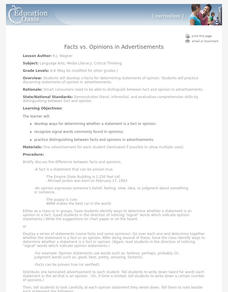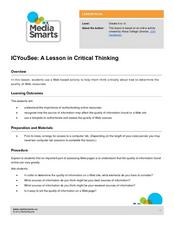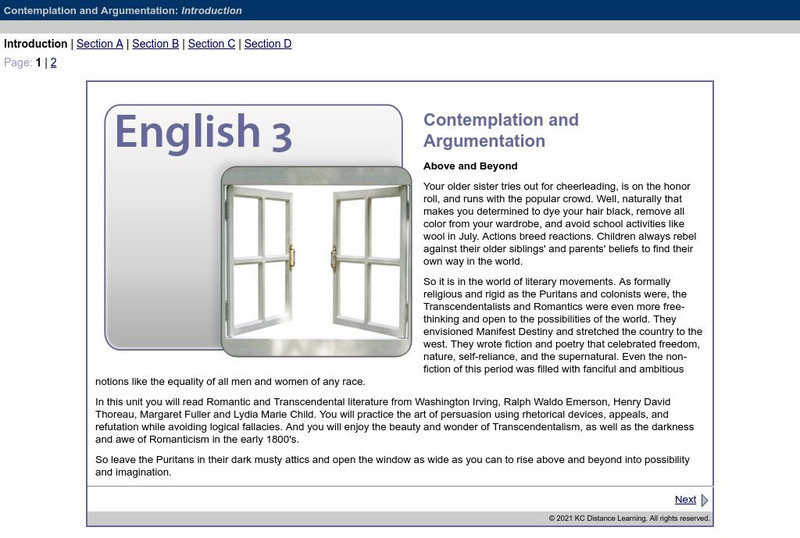Curated OER
Fact vs. Opinion (Part II)
How can you tell the difference between fact and opinion? Using newspapers, learners determine which articles contain statements of fact, and which articles reflect the writer's opinion. The lesson plan includes a discussion format and a...
Curated OER
Facts vs. Opinions in Ads
Middle schoolers develop criteria for determining statements of opinion. They practice discerning statements of opinions in advertisements.
Curated OER
Don't Let the Earth Down
Writing a persuasive argument starts with a clear thesis. Using this resource, your class will write a persuasive paper on a conservation issue. They will then transform their argument into a 30-second public service announcement. If...
Curated OER
ICYouSee: A Lesson in Critical Thinking
Stress the importance of authenticating online resources and understanding the sources of websites' information with this activity. Using a Web-based activity, the activity prompts young learners to think critically about determining the...
Curated OER
Bias vs. Perspective: An Inevitable Aspect of Journalism?
Students explore the types of media that U.S. teens prefer the ways in which viewers identify and account for journalistic bias. They explore the ways in which media shapes one's opinion or affects their judgment.
Curated OER
T-Charts
In this literacy worksheet, students use the t-charts that are designed for the specific activity. The sheet is a teacher's guide to making them.
Curated OER
"I Don't Pay Attention to Advertisements? (At least I don't think so?)"
Sixth graders study eight persuasive techniques that occur in a variety of media types. They write a persuasive essay and present it to the class. They create a "new product" for which they produce an advertisement using persuasive...
Department of Defense
Do Dea: Contemplation and Argumentation
In this self-guided unit, you will read Romantic and Transcendental literature and you will practice the art of persuasion using rhetorical devices, appeals, and refutation while avoiding logical fallacies. By the end of the unit, you...







